Blog
Get the inside scoop about life at U-M and applying to Michigan from current student bloggers, Admissions staff, and guest faculty writers.

Get the inside scoop about life at U-M and applying to Michigan from current student bloggers, Admissions staff, and guest faculty writers.

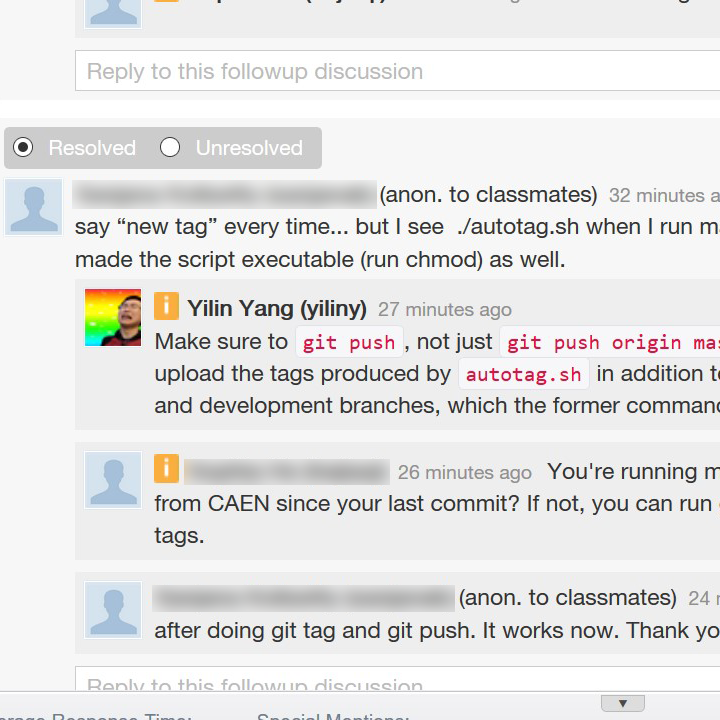
Universities hire undergraduates and graduate students to assist faculty in teaching their many course offerings, and Michigan is no exception. And after multiple semesters of trying, I've finally been able to squeeze myself into a position as an undergraduate Instructional Aide (IA) for the College of Engineering!
This term, I'm helping to teach EECS 482 "Introduction to Operating Systems,” an upper-level computer science course that covers parallel computing, kernel-level virtual memory management, basic networking, and file systems, among other things. It has a reputation for being a “Spicy Meatball” of a class – it counts for up to six credit hours when most courses count for a maximum of four — but it’s also broadly considered to be one of the most useful and rewarding courses offered by the department. Being appointed as an IA for EECS 482 is considered a high honor, one that I treat with all the gravitas and maturity that responsibility entails.
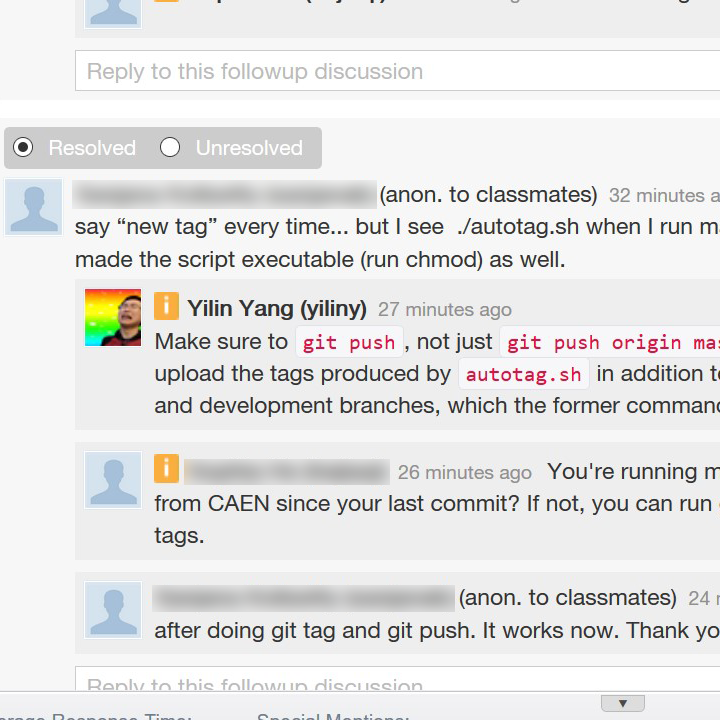
Even so, being a student instructor is challenging and comes with a number of surprises. I've compiled a few of the most salient points, and shared them with you below!
Background: What is an IA?
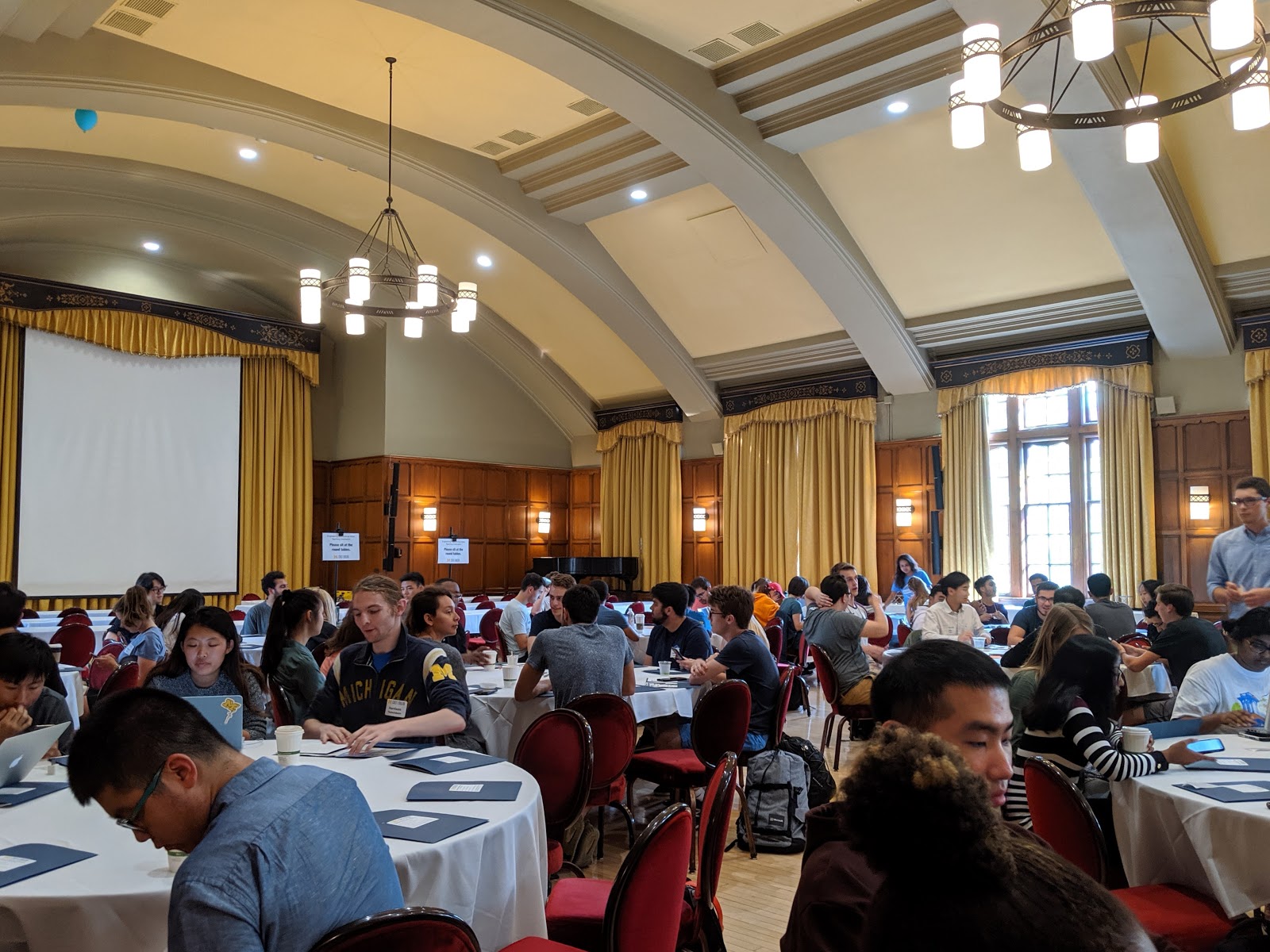
From what I understand, "Instructional Aide” is functionally a synonym for "Teaching Assistant" that the College of Engineering prefers for unknown reasons. IAs, alongside College of Engineering Graduate Student Instructors (GSIs), help teach discussion sections and labs, proctor and grade exams, hold office hours to help students with projects and homework, answer questions on the course forum (usually Piazza), and generally assist course instructors with the ancillary responsibilities of teaching a course.
IAs and GSIs are compensated for their work; Glassdoor says that IAs in the College of Engineering typically make around $20 an hour, give or take a few dollars (myself and my friends earn $24.50 an hour); GSIs are typically compensated with free tuition for the duration of their appointment.
The College of Engineering actively prioritizes inclusivity in teaching
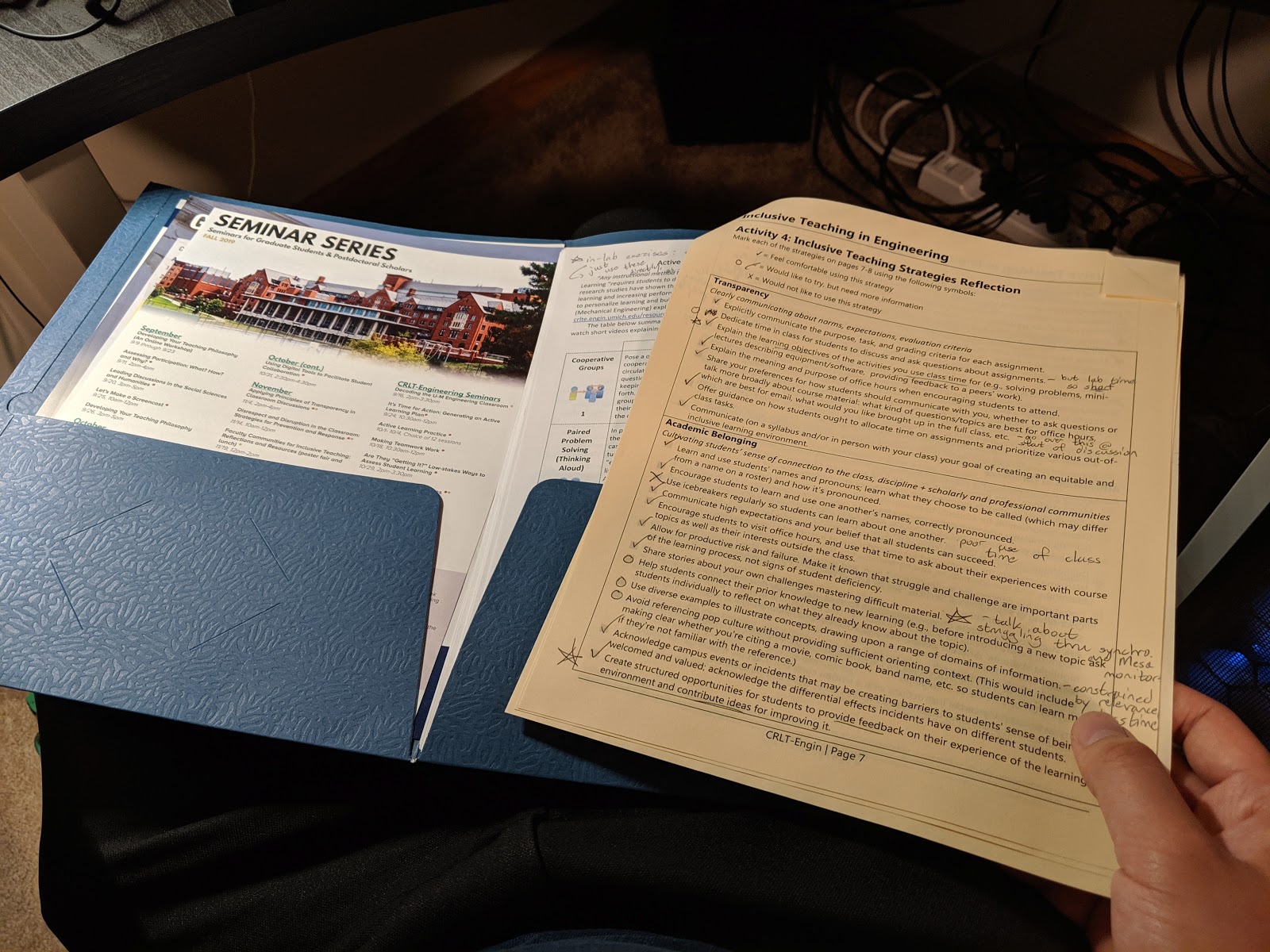
Though the university publicly states that diversity, equity, and inclusion are one of its highest priorities, past experiences have made me cynical and led me to expect a wide gulf between what an organization says it values and what it actually values.
With that it mind, it's deeply refreshing to see that this commitment goes beyond public relations to both training and hiring. The college trained myself and all other IAs that it hired this term in inclusive teaching, and the recommendations that it made felt – not empty nor boilerplate – but practical, grounded, and actually relevant to my day-to-day work. And despite the student gender balance of Michigan's EECS department having more men, the majority of the department's IA positions are held by women, due in part to the fact that...
The College of Engineering demonstrably cares about quality of instruction
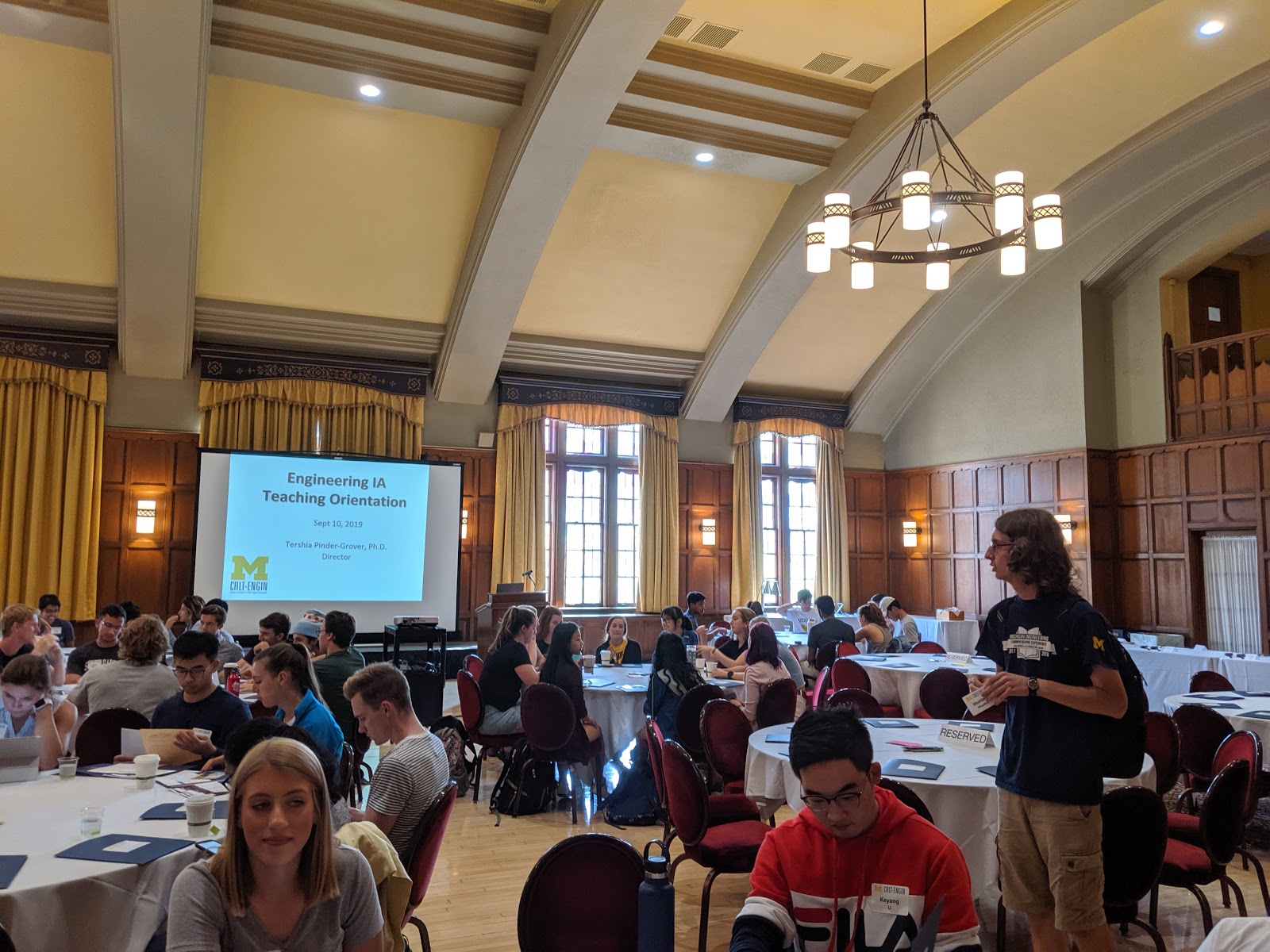
Course instructors try, as much as possible, to hire IAs based on actual pedagogical skill, not just how well they did in the class. Hiring based (for instance) solely on GPA would be much easier, but just as there's no correlation between the strength of a professor's research and their effectiveness as an instructor, there's no meaningful relationship between a student's knowledge (as measured by their grades) and their ability to teach that knowledge to others.
The College of Engineering (and other schools and colleges) partner with the university's Center for Research and Learning on Teaching (CRLT) to use research-based methods to improve the quality of student instruction. For instance, one service that CRLT-Engin offers is to have one of their consultants sit in and observe your discussion section; you (the instructor) leave the room for the last ten minutes of class, and the consultant solicits feedback from your students on the effectiveness of your teaching; the consultant conveys this anonymized feedback to you, in addition to their own suggestions, after the class is over. For GSIs and EECS IAs, having a session like this (or some other form of professional development) done is actually required during your first term as an instructor!
It's encouraging to see the college prioritize student learning this seriously. But it's also relieving, since they aren't just throwing the student instructors to the proverbial wolves (wolverines?) without any meaningful support.
Teaching well is actually really hard
Although the College of Engineering's curriculum teaches collaboration and communication skills, teaching has still been a major departure from my past work experience as a computer science student and software engineer.
I think that most students who become IAs – and most people who become teachers, in general – dream of being The Golden Instructor who is beloved and respected by their students and whose tutelage elevates the most self-doubting of students to a position of confidence and understanding.
They don't usually imagine teaching a discussion sleep-deprived at 9:30 a.m. on a Friday morning to a combined total of five students.
While I have had the deep satisfaction of lending substantial, meaningful one-on-one assistance during office hours, I think I've mostly accepted that teaching isn't necessarily a glamorous activity. But that's okay; if you aren't teaching because you want to help students learn, then you're teaching for the wrong reasons.
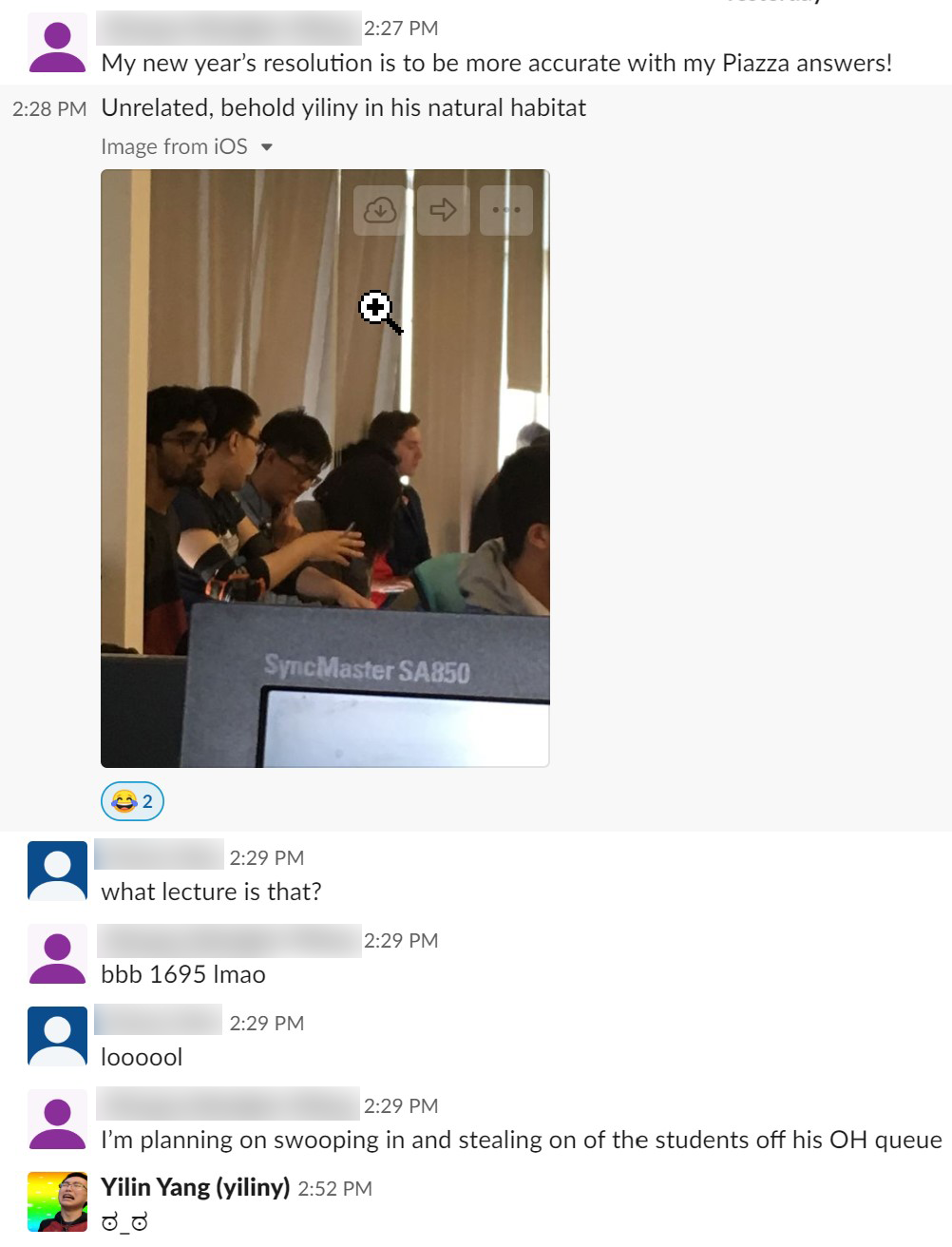
How do you become an IA?
It varies depending on the college and the department. For EECS, the college announces that IA applications have opened through email, and accepts applications through a standardized web form.
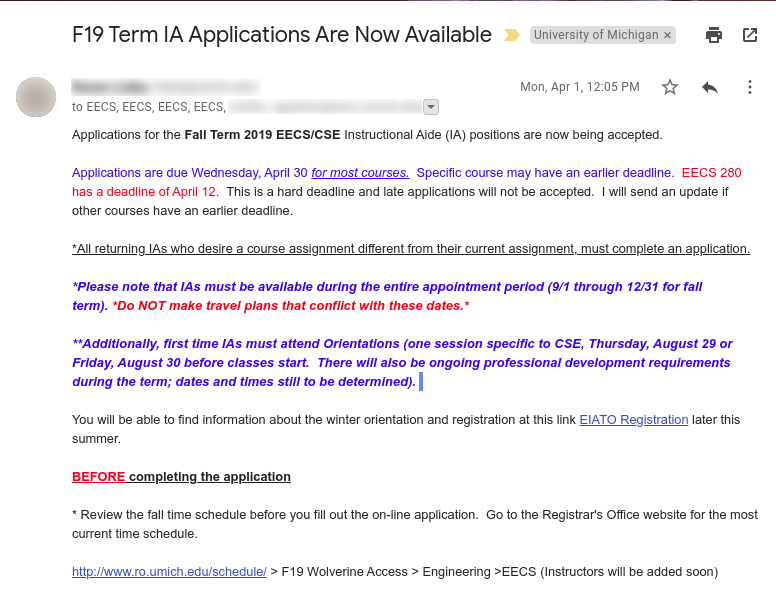
Courses have their own separate hiring processes beyond that point, which vary in rigor depending on the course and on how many applicants the course typically receives. For many courses, it suffices to have a good relationship with the professors; for others, like EECS 482, applicants typically need to distinguish themselves by being Conspicuously Helpful on the course Piazza while they're a student; for first-year intro programming courses (ENGR 101, ENGR 151, and EECS 183), strong pedagogical skills are paramount, so their applicants go through a special pipeline; for certain courses – like EECS 280: "Introduction to Data Structures,” which now enrolls over a thousand students per semester and which may receive hundreds of applicants – prospective IAs need to film short videos of themselves teaching course concepts as part of a first-round screening prior to a formal interview.

Based on my limited personal experience, the difficulty of receiving an appointment as a course IA is inversely related to that course's number. Lower-numbered courses for freshmen and sophomores have larger applicant pools and more stringent pedagogical requirements, while higher-numbered courses suffer from being more specialized (so that fewer students will take them and be qualified to teach for them) and have higher turnover, since newly hired IAs typically only work one or two semesters before graduating. Acing the course is usually a de facto prerequisite, but it's not sufficient by itself; as mentioned above, you have to have skill as a teacher and a communicator to be a strong choice.
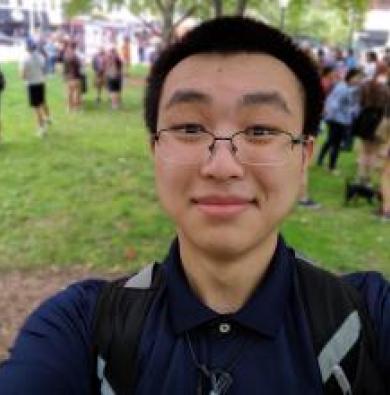
(rhymes with "Dylan") is a senior in the College of Engineering. Though free-spirited and soulful in his youth, Yilin was doomed to major in computer science after being kidnapped by feral app developers and raised in the Michigan wilderness. Outside of his coursework, Yilin works as an Instructional Aide for EECS 482: "Intro Operating Systems", writes plugins for obscure open-source text editors, and injures himself grievously while riding Bird scooters.